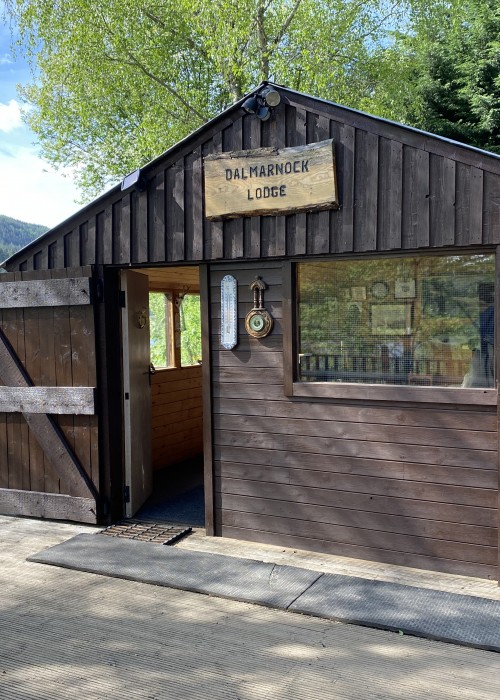
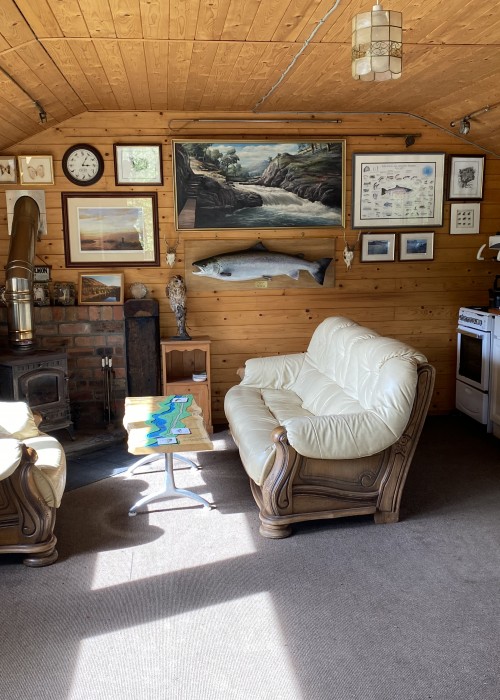
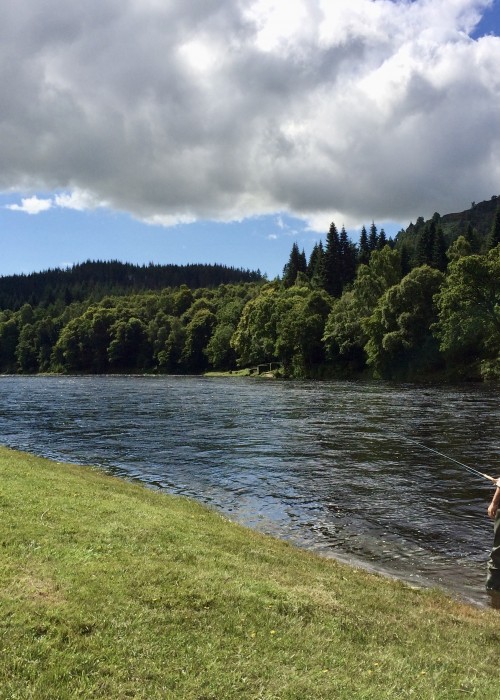

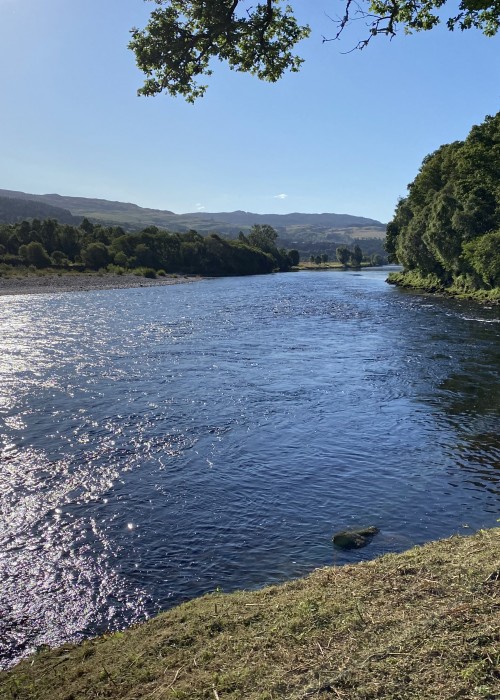
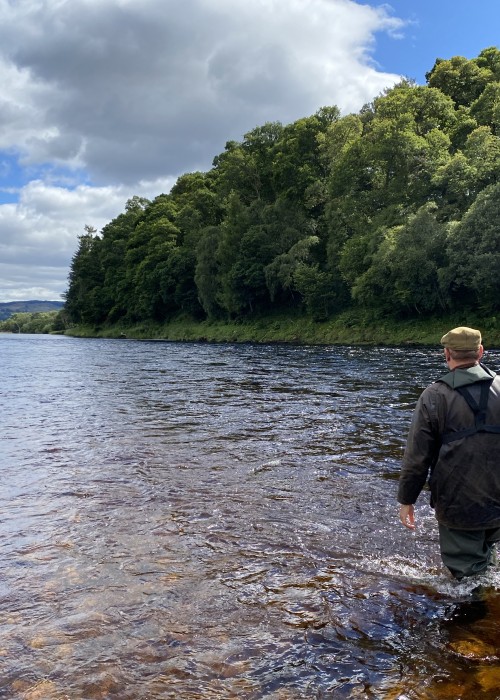
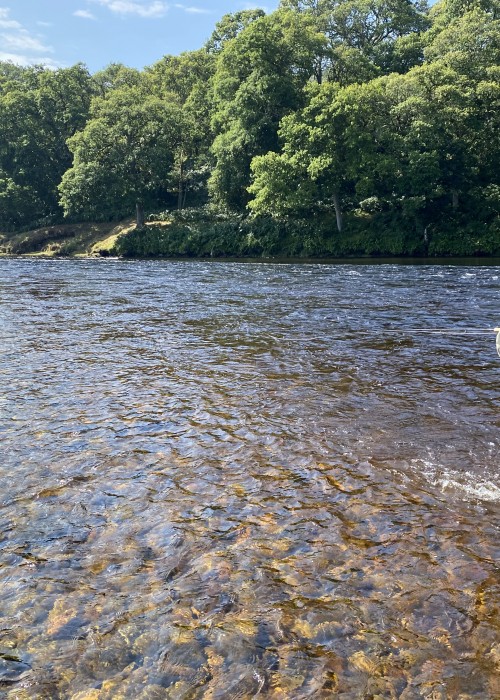
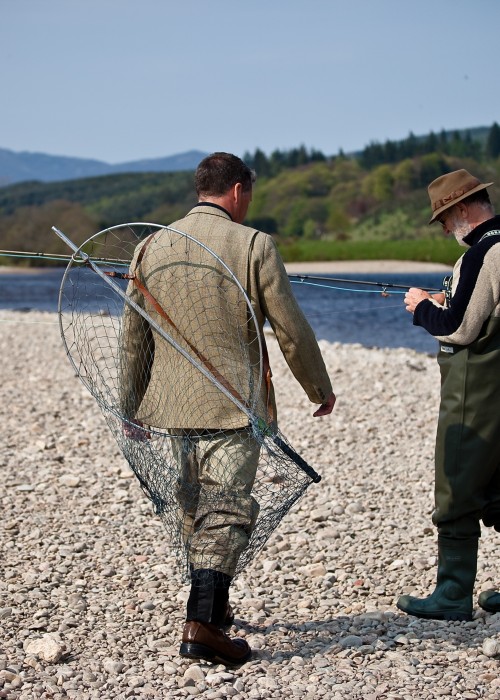
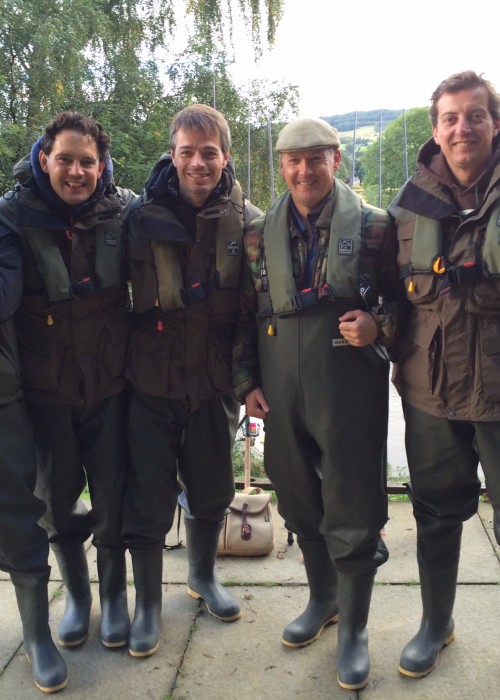
Professional Scottish salmon guide advice on how to conduct yourself properly on the salmon rivers of Scotland.
Like any outdoor pursuit where there are other participants to consider there are certain etiquette rules and operational procedures to follow to enhance your salmon fishing day experience and the experience of fellow salmon fishers and ghillies. There are also Health & Safety procedures to follow as the rivers and the surrounding environment have many potential hazards so rules are also in place to safeguard visiting salmon fishers. What I'm about to write is my take on a few different aspects for ensuring the effective running of a salmon beat however each professional Scottish ghillie will have their own view and rule book to follow on this topic.
Scottish salmon fishing beats that are run professionally have limited numbers of fishing guest spaces (rods) to market each day to prevent an over-fishing scenario arising. On many ocassions the salmon fishers who book a beat will not be from the same group of fishers and more likely a mixed party of fishers. It's always good etiquette to contact (by phone or text) the Head Ghillie to confirm your participation within 48 hours of your fishing day so the Head Ghillie knows you're definitely coming. Nothing annoys a Head Ghillie more than a 'no show' where his fishing day guest service is disrupted by what he'll likely perceive as late arriving fishing guest. Turning up late therefore is also best avoided if possible unless you've already alerted the Head Ghillie of your later than normal arrival. The normal expected arrival time for fishing guests to be at the fishing hut meeting place location is between 8.30am - 8.45am.
Once fishing commences on a properly managed salmon fishing beat you'll be allocated a salmon pool (or pools) for the morning fishing session. Sometimes this can mean that you're sharing pools with (or in rotation with) other paying salmon fishing guests. In this situation it is expected that you do not remain static on a salmon pool and stay on the move with at least 1 good step between each cast (or better still 2 or 3 steps between casts for maximised water coverge). If you're fishing salmon pools in rotation with other salmon fishers with a change over at 11am (mid morning) it is expected that you stop fishing at 11am even if you're seeing salmon in the pool and feel compelled to fish that pool longer. The only reason not to stop fishing at 11am for a pool rotation (if the morning fishing session has been structured that way) is if you're playing something hefty!
On properly managed Scottish salmon fishing beats there is a lunch break between 1pm & 2pm where the fishing effort stops and the salmon pools are rested for an hour. It is expected that all salmon fishing guests cease fishing at 1pm (or slightly before) and make their way back to the fishing hut for lunch. It is poor etiquette to continue fishing through the lunch hour especially on a salmon pool that another salmon fisher will likely be allocated for the afternoon fishing session. During the lunch hour the Head Ghillie will usually re-allocate salmon pools for the afternoon fishing session to rotate his fishing guests onto pools they did not fish during the morning fishing session.
On properly managed Scottish salmon fishing beats the fishing day normally ceases at around 5pm when anglers are expected to return to the fishing hut. It is often possible for a salmon fisher to fish on with prior permission from the Head Ghillie but normally the Head Ghillie will not be present in the evenings so the salmon fishing guests will need to follow the Head Ghillie's instruction on where to fish if the 'evening cast' is permitted. On mixed party fishing days it's usually not possible to start fishing any earlier than 9am without specific advance permission from the Head Ghillie as it looks bad for the Head Ghillie if other guests arrive at the salmon beat at the normal 8.30am time to observe other salmon fishers already out fishing the pools.
Follow this link to learn more about salmon fishing etiquette and to learn the tactical skills required to catch Atlantic salmon in Scotland. There's no subsitute for a good grounding on the best tactics for success in Scottish salmon fishing via a professionally guided salmon fishing experience before embarking on solo salmon fishing days. Like any other rural pursuit, profession or industry there's a learning curve involved in salmon fishing and especially if you want to outsmart a wild Atlantic salmon on one of Scotland's famous river venues.